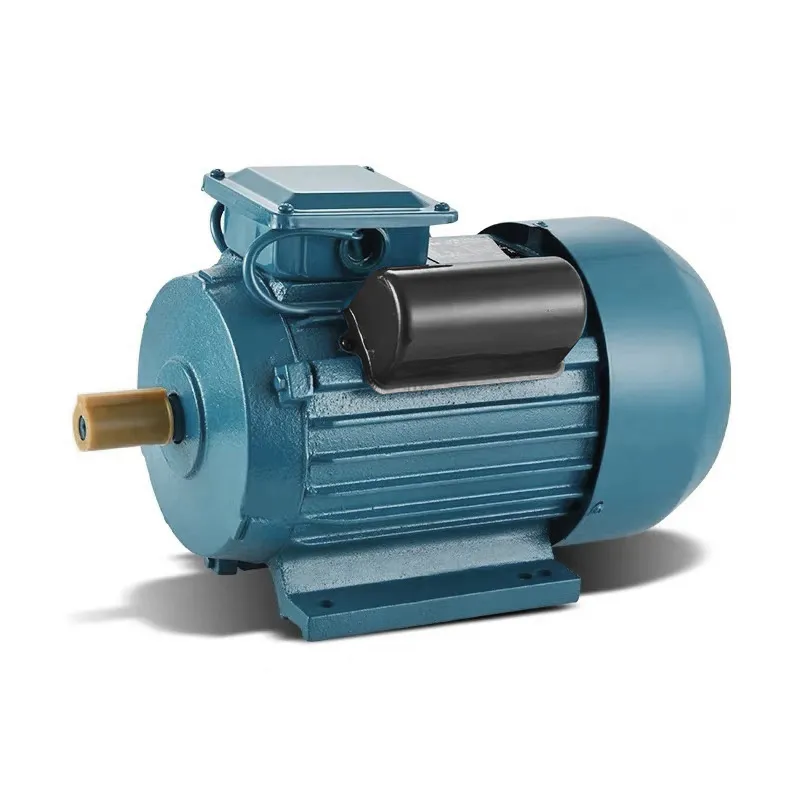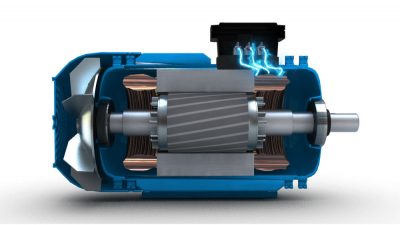Product Description
0.12~500KW IE2 ElECTRIC MOTOR
| 1) Frame sizes | 71~400 |
| 2) Rated power | 0.12~500kw |
| 3) Rated voltage | 380 V, 660V or others |
| 4) Frequency | 50Hz/ 60HZ |
| 5) Protection class | IP55, IP56 or others |
| 6) Insulation class | F or H |
| 7) Materials | Cast iron, aluminum |
| 8) Efficiency | IE2 or higher |
| 9) Poles | 2/4/6/8/10 |
| 10) Cooling method | IC411 |
| 11) Mounting types | IMB5, B3, B35, B14 or others |
| 12) Operating mode | S1 |
WELCOME TO LANGRUI MOTOR
LANGRUI MOTOR is a leading electric motor manufacturer and supplier since 1958.
We have over 60 years’ experience in electric motor manufacturing, technical developing, design and innovation.
In addition to general purpose products, customized products are our superior advantages.
We have complete management, design, procurement, production, inspection, logistics and service.
We are certified by the international standard certification of ISO9001, ISO14001, ISO45001, CE, etc.
Professional products, reliable quality and excellent service credit us CHINAMFG reputation in the past decades years.
We are committed to providing better products and services to meet the actual needs of our customers, and to create maximum social benefits.
LANGRUI MOTOR RANGE
| Single Phase Induction Motor | IE2/IE3/IE4 Efficiency Electric Motor |
Squirrel Cage Induction Motor | Slip Ring Induction Motor | Brake Motor |
| Multi Speed Motor | Inverter Duty Motor | Explosion Proof Electric Motor | Crane Duty Motor | Vibration Motor |
| GOST Motor | NEMA Motor | Synchronous Motor | DC Motor | Customized Design Motor |
LANGRUI SERVICE COUNTRY/AREA
LANGRUI MOTOR supplies our top-quality motor products to more than 40 countryies/areas.
Africa: Algeria, Egypt, Libya, Nigeria, South Africa, Tanzania, Zambia, etc.
America: Xihu (West Lake) Dis.via, Brazil, Chile, Colombia, Ecuador, Honduras, Mexico, Paraguay, Peru, etc.
Australia: Australia, etc.
East-Europe: Azerbaijan, Georgia, Russia, Ukraine, etc.
Europe: Albania, German, Macedonia, Netherlands, Italy, Spain, etc.
South-Asia: Bangladesh, India, Pakistan, Sri Lanka, etc.
Mid-East: Iran, Iraq, Jordan, Kuwait, Lebanon, Oman, Qatar, Saudi Arabia, U.A.E., etc.
Mid-Asia: Kazakhstan, Mongolia, Uzbekistan, etc.
Southeast-Asia: Indonesia, Malaysia, Philippine, Singapore, Thailand, Vietnam, etc.
LANGRUI APPLICATION
Our brand motor is well recognized and trusted in the field of compressors, fans, pump, conveyor, crane, crusher, elevators, grinder, mill, mixers, pressor, ventilator etc.
Our brand motor also win great credit in industries of agricultural, cement, centrifugal, chemical, food, forging, foundry, hydraulic, mine, oil, metallurgy, machine tools, package, pelleting, plastic, power, refrigerating, steel mill, textile, transportation and especially among the OEM production.
/* January 22, 2571 19:08:37 */!function(){function s(e,r){var a,o={};try{e&&e.split(“,”).forEach(function(e,t){e&&(a=e.match(/(.*?):(.*)$/))&&1
| Application: | Industrial |
|---|---|
| Speed: | Constant Speed |
| Number of Stator: | Three-Phase |
| Function: | Driving |
| Casing Protection: | Closed Type |
| Number of Poles: | 2-10 |
| Customization: |
Available
|
|
|---|

What factors should be considered when selecting an AC motor for a particular application?
When selecting an AC motor for a particular application, several factors need to be considered to ensure the motor meets the requirements and performs optimally. Here are the key factors to consider:
- Power Requirements: Determine the power requirements of the application, including the required torque and speed. The motor should have adequate power output to meet the demands of the specific task. Consider factors such as starting torque, running torque, and speed range to ensure the motor can handle the load effectively.
- Motor Type: There are different types of AC motors, including induction motors, synchronous motors, and brushless DC motors. Each type has its own characteristics and advantages. Consider the application’s requirements and factors such as speed control, efficiency, and starting torque to determine the most suitable motor type.
- Environmental Conditions: Assess the environmental conditions in which the motor will operate. Factors such as temperature, humidity, dust, and vibration levels can impact motor performance and longevity. Choose a motor that is designed to withstand the specific environmental conditions of the application.
- Size and Space Constraints: Consider the available space for motor installation. Ensure that the physical dimensions of the motor, including its length, diameter, and mounting arrangement, are compatible with the available space. Additionally, consider the weight of the motor if it needs to be mounted or transported.
- Efficiency: Energy efficiency is an important consideration, as it can impact operational costs and environmental sustainability. Look for motors with high efficiency ratings, which indicate that they convert electrical energy into mechanical energy with minimal energy loss. Energy-efficient motors can lead to cost savings and reduced environmental impact over the motor’s lifespan.
- Control and Speed Requirements: Determine if the application requires precise speed control or if a fixed speed motor is sufficient. If variable speed control is needed, consider motors that can be easily controlled using variable frequency drives (VFDs) or other speed control mechanisms. For applications that require high-speed operation, select a motor that can achieve the desired speed range.
- Maintenance and Serviceability: Assess the maintenance requirements and serviceability of the motor. Consider factors such as the accessibility of motor components, ease of maintenance, availability of spare parts, and the manufacturer’s reputation for reliability and customer support. A motor that is easy to maintain and service can help minimize downtime and repair costs.
- Budget: Consider the budget constraints for the motor selection. Balance the desired features and performance with the available budget. In some cases, investing in a higher quality, more efficient motor upfront can lead to long-term cost savings due to reduced energy consumption and maintenance requirements.
By carefully considering these factors, it is possible to select an AC motor that aligns with the specific requirements of the application, ensuring optimal performance, efficiency, and reliability.

How do AC motors contribute to the functioning of household appliances?
AC motors play a crucial role in the functioning of numerous household appliances by converting electrical energy into mechanical energy. These motors are used in a wide range of devices, powering various components and performing essential tasks. Let’s explore how AC motors contribute to the functioning of household appliances:
- Kitchen Appliances: AC motors are found in various kitchen appliances, such as refrigerators, freezers, dishwashers, and blenders. In refrigerators and freezers, AC motors drive the compressor, which circulates the refrigerant and maintains the desired temperature. Dishwashers use AC motors to power the water pumps, spray arms, and the motorized detergent dispenser. Blenders utilize AC motors to rotate the blades and blend ingredients.
- Laundry Appliances: AC motors are integral to laundry appliances like washing machines and clothes dryers. Washing machines rely on AC motors to power the agitator or the drum, facilitating the washing and spinning cycles. Clothes dryers use AC motors to rotate the drum and operate the blower fan, facilitating the drying process.
- Vacuum Cleaners: Vacuum cleaners utilize AC motors to generate suction and drive the motorized brush or beater bar. These motors power the fan or impeller, creating the necessary airflow for effective cleaning.
- Fans and Air Circulation: AC motors are employed in various types of fans, including ceiling fans, table fans, and pedestal fans. These motors drive the fan blades, producing airflow and facilitating air circulation to provide cooling or ventilation in rooms. Additionally, AC motors power exhaust fans used in kitchens, bathrooms, and range hoods to remove odors, smoke, or excess moisture.
- Air Conditioning and Heating Systems: AC motors are critical components in air conditioning and heating systems. They power the compressor, condenser fan, and blower fan, which are responsible for circulating refrigerant, dissipating heat, and delivering conditioned air throughout the house. AC motors enable the regulation of temperature and humidity levels, ensuring comfort in residential spaces.
- Garage Door Openers: AC motors are utilized in garage door openers to drive the mechanism responsible for opening and closing the garage door. These motors generate the necessary torque to lift or lower the door smoothly and efficiently.
- Other Appliances: AC motors are also found in a variety of other household appliances. For instance, they power pumps in water heaters, swimming pool filters, and sump pumps. AC motors are used in dehumidifiers, humidifiers, and air purifiers to drive the fans and other internal components. They are also present in audiovisual equipment, such as DVD players, record players, and fans used for cooling electronics.
In summary, AC motors are essential components in household appliances, enabling their proper functioning and delivering the mechanical energy required for various tasks. From kitchen appliances to laundry machines, fans, air conditioning systems, and more, AC motors provide the necessary power and functionality to enhance our daily lives.

What are the key advantages of using AC motors in industrial applications?
AC motors offer several key advantages that make them highly suitable for industrial applications. Here are some of the main advantages:
- Simple and Robust Design: AC motors, particularly induction motors, have a simple and robust design, making them reliable and easy to maintain. They consist of fewer moving parts compared to other types of motors, which reduces the likelihood of mechanical failure and the need for frequent maintenance.
- Wide Range of Power Ratings: AC motors are available in a wide range of power ratings, from small fractional horsepower motors to large industrial motors with several megawatts of power. This versatility allows for their application in various industrial processes and machinery, catering to different power requirements.
- High Efficiency: AC motors, especially modern designs, offer high levels of efficiency. They convert electrical energy into mechanical energy with minimal energy loss, resulting in cost savings and reduced environmental impact. High efficiency also means less heat generation, contributing to the longevity and reliability of the motor.
- Cost-Effectiveness: AC motors are generally cost-effective compared to other types of motors. Their simple construction and widespread use contribute to economies of scale, making them more affordable for industrial applications. Additionally, AC motors often have lower installation and maintenance costs due to their robust design and ease of operation.
- Flexible Speed Control: AC motors, particularly induction motors, offer various methods for speed control, allowing for precise adjustment of motor speed to meet specific industrial requirements. Speed control mechanisms such as variable frequency drives (VFDs) enable enhanced process control, energy savings, and improved productivity.
- Compatibility with AC Power Grid: AC motors are compatible with the standard AC power grid, which is widely available in industrial settings. This compatibility simplifies the motor installation process and eliminates the need for additional power conversion equipment, reducing complexity and cost.
- Adaptability to Various Environments: AC motors are designed to operate reliably in a wide range of environments. They can withstand variations in temperature, humidity, and dust levels commonly encountered in industrial settings. Additionally, AC motors can be equipped with protective enclosures to provide additional resistance to harsh conditions.
These advantages make AC motors a popular choice for industrial applications across various industries. Their simplicity, reliability, cost-effectiveness, energy efficiency, and speed control capabilities contribute to improved productivity, reduced operational costs, and enhanced process control in industrial settings.


editor by CX 2024-04-10
by
Tags:
Leave a Reply